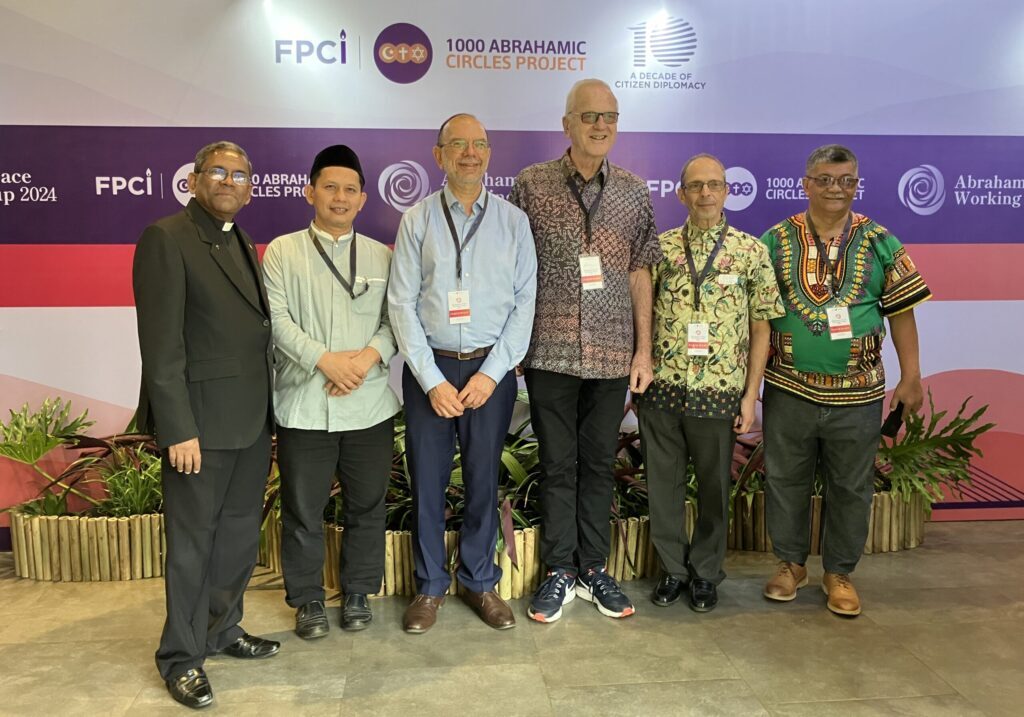Australia/Israel Review
Editorial: The Asian Connection
Jan 25, 2012 | Colin Rubenstein
Colin Rubenstein
In his interview with Greg Sheridan published in the Australian on Jan. 14, Israeli Prime Minister Binyamin Netanyahu, when asked why there is so much hostility to Israel in the world, replied:
First of all, it’s not so uniform as one might think. I just had breakfast with the Indian foreign minister. We talked about great projects of co-operation. It was a very positive conversation. We have similar experiences with China, which we feel has a desire for greater co-operation with Israel. Both countries express a real appreciation for Israeli technology. Israel has become a world power in technology: in agriculture, in medicine, in irrigation, in telecommunications, in IT, in cyber and in many other areas.
Our president just went to Vietnam. Israel, I would say, is quite popular in Asia. People judge that it makes sense to have a close collaboration with Israel in the 21st century, the century of knowledge.
These comments illustrate an often misunderstood reality, as well as improving efforts by the Israeli Government to capitalise on a changing global equilibrium.
As Sheridan, who knows Asia well, elaborated on Netanyahu’s point, “Israel is making very big gains in Asia, which an Atlantic-centric Western media and the Arab world both tend to miss. Israel is making significant progress in Asia diplomatically, economically, in all measures of trade and in military-to-military exchanges.”
As Netanyahu attempted to point out, the assumption that Israel is becoming more isolated in recent years makes sense only if one’s focus is mainly on a segment of opinion in Western Europe – ignoring the US, Eastern Europe and Israel’s renewal of old ties in Sub-Saharan African. But a most important part of the real world, and an area of major opportunity for Israel, is in South, Southeast and East Asia.
Not only are Israel’s multi-faceted relations with many of the states in Australia’s regional neighbourhood developing strongly, these states are more geopolitically important than ever. Indeed, international affairs experts have long speculated that the 21st century is likely to be the “Asia/Pacific Century” where the focus of world events increasingly centres on North America and East and Southeast Asia, and the relations between them.
Today, it is not only China, Japan and the Asian “Tigers” – Hong Kong, Singapore, South Korea and Taiwan – that are centres of world economic power. Also becoming increasingly important are Thailand, Malaysia, Indonesia and Vietnam. Meanwhile, India is shaping up as a major economic player, and provides an alternative democratic model of growth and development to China.
Australia has the good fortune to be placed squarely in the midst of this exciting, ever more vibrant and dynamic region. But Israel too is both well-placed to become enmeshed in this shift, and is becoming more adroit at doing so.
Having helped facilitate a series of weeklong study visits to Israel – co-organised by AIJAC with the American Jewish Committee (AJC) – of journalists, academics and government officials from Thailand, Vietnam, the Philippines, India, and Indonesia, I can attest that interest in Israel in these states is sincere and very significant. Israel’s businessmen and hi-tech expertise are already well-known in all these countries amongst elite circles. There is the potential to bring these relations to a whole new level, however, with a modest upgrade of resources and focus.
Despite their interest in Israel, there are also many blind spots in these countries about the true situation and context of the Israeli-Palestinian and wider Islamist-Israel conflicts. And admittedly, there are periodic disappointments, as in the current Thai Government’s premature, ill-advised decision to recognise a Palestinian state. But many in Asia also adhere to a robust view of state and national sovereignty which provides for strong rights of national self-defence. They have the potential to be quite sympathetic to Israel’s dilemmas in confronting terrorism, Islamist extremism and international delegitimisation, if persuasively exposed to the factual realities of Israel’s political situation.
Indonesia looms to be particularly important. It is the world’s largest Muslim-majority country, and one which showed, more than a decade before the Arab Spring, how a popular revolt against an entrenched authoritarian dictatorship can transition to genuine democracy, through the politics of compromise and reconciliation, in an Islamic environment. As such, it is currently a better model of democratic transition for the countries of the Middle East than Turkey, with its increasingly severe judicial repression of political opponents and journalists under the current government. The Indonesian leadership is justifiably proud of their achievements and well-placed to play a mentoring role – particularly in helping guide the Palestinians toward a democratic statehood that will be essential for their own viability and to ensure peaceful co-existence with Israel following a two-state peace settlement.
As Netanyahu illustrated with his remarks, Israel is today transcending its traditionally subterranean diplomacy in Southeast Asia, which focused mainly on business and security relations. Australian politicians and diplomats, happily, have frequently been helpful in encouraging these efforts to enhance ties and mutual benefits between our regional friends and neighbours with Israel, another longstanding Australian friend.
The incremental positives of these efforts are manifest – in terms of economic growth and trade, improving international co-operation and stability, and very importantly, in terms of nurturing conditions for an eventual enduring Israeli-Palestinian two-state peace settlement. This requires a secure and recognised Israel, a democratic, peaceful Palestinian state, and regional stability, all outcomes Australia’s Southeast Asia neighbours can help foster and encourage through the example of their own experiences and by their deeds!






